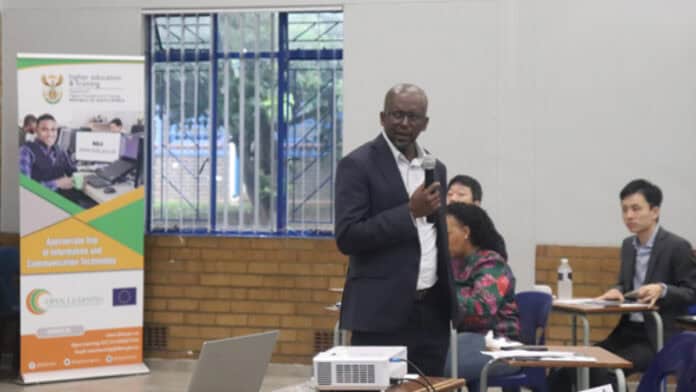Collaboration is key to addressing South Africa’s critical skills shortage
South Africa’s chronic skills shortage continues to challenge both industry and government. Yet, as the automotive sector evolves through rapid technological change, partnerships between training bodies, employers and government are proving that progress is possible when everyone works together.

At the recent SA National Artisan Awards meet and greet session, Louis van Huyssteen, National Training Director of the Retail Motor Industry Organisation (RMI), highlighted the importance of collaboration with the Department of Higher Education and Training (DHET), particularly through their Centres of Specialisation (CoS) programme.
“The RMI has developed a strong working relationship with the DHET and is proud to have contributed as Occupational Team Convenor in the trades of Automotive Motor Mechanic and Diesel Mechanic – two critical trades that underpin mobility and logistics across the country,” notes Van Huyssteen.
Sabelo Buthelezi, Chief Director of the DHET’s Special Projects Unit and custodian of the Centres of Specialisation programme, says the initiative has been a game-changer for artisan development in South Africa.
“The Centre of Specialisation is unique compared to any standard TVET college programme because it was designed as a flagship development intervention to address three main areas – skills development, support for industrialisation, and strengthening the artisan development pipeline,” explains Buthelezi.
He says the CoS model is built on strong collaboration between TVET colleges, employers, and SETAs, ensuring that training remains demand-led and industry-relevant. “It’s a partnership model that brings employers into the heart of artisan training. It’s also a catalyst for college reform – a dual-system, standardised, and demand-responsive model that ensures artisans are trained with the exact skills needed to support economic development.”
Currently, 14 trades are being delivered through Centres of Specialisation nationwide, ranging from electrical and welding to motor mechanics and plumbing.
Buthelezi stresses that the importance of artisan development extends far beyond individual training outcomes. “Artisan development is vital for supporting economic growth and industrialisation. Skilled artisans including electricians, welders, plumbers, fitters and turners are essential for building infrastructure, energy systems, transport and manufacturing. Without them, large-scale projects like renewable energy plants, roads and housing simply cannot be implemented.”
He adds that artisan training not only addresses scarce skills but also drives job creation and youth employability, with skilled artisans in high demand both locally and globally. “Training more artisans provides young people with marketable skills, reducing unemployment, particularly youth unemployment. It also supports the just energy transition, which is a key focus area for South Africa right now.”
Van Huyssteen agrees, noting that industry’s direct involvement in artisan training has never been more important. “The automotive industry sits at the centre of South Africa’s transport, manufacturing and service economy. Without skilled mechanics and technicians, the sector simply can’t function,” he says.
“The RMI’s partnership with DHET through the Centres of Specialisation ensures that training remains relevant, practical and responsive to real industry needs. By sharing expertise and aligning training with evolving technologies, we’re not only helping young people find meaningful careers – we’re securing the future sustainability of our industry.”
Both Van Huyssteen and Buthelezi believe that collaboration is the key to unlocking South Africa’s human capital potential. “Artisan development is not just about training individuals,” Buthelezi concludes. “It’s about building the skills foundation for South Africa’s industrialisation, economic transformation, and social upliftment.”
